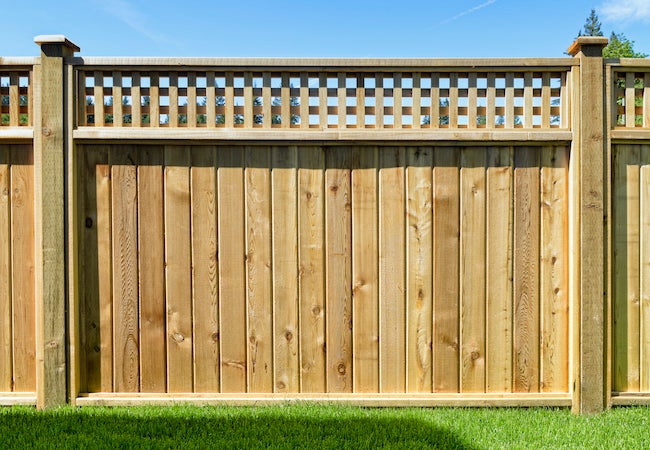Are you in need of a new fence for your property but not sure which material to choose? Choosing the right fence material can be a daunting task with so many options available in the market. But don’t worry, I’m here to help you navigate through this decision-making process. In this article, I will provide you with comprehensive and engaging information about different fence materials and their suitability for various needs. By the end, you’ll have a better understanding of which material will best meet your requirements.
When it comes to fences, there are a plethora of materials to choose from. Wooden fences, chain-link fences, vinyl fences, metal fences, and more – each has its own set of advantages and considerations. In this article, we’ll dive into the characteristics and benefits of each material, discussing their durability, maintenance requirements, and aesthetic appeal. Furthermore, we’ll explore which types of fences are best suited for specific purposes, such as enhancing privacy, ensuring security, enclosing a backyard, or simply adding decorative elements to your property.
But wait, that’s not all! I will also guide you on how to choose the appropriate size and shape of your fence based on your specific requirements. Factors like property size, desired level of enclosure, and architectural considerations play a crucial role in determining the perfect fit for your fence.
So, get ready to become a fence expert! In the following paragraphs, you’ll find all the information you need to make an informed decision when selecting and installing your new fence. And if you’re still left with any questions, don’t worry – I’ve got you covered. At the end of the article, I’ll provide you with answers to some of the most common questions people have about fences.
Choosing the Right Fence Material for Your Needs
Choosing the right fence material is crucial when it comes to meeting your specific needs and requirements. Whether you’re looking to enhance privacy, ensure security, add decorative elements, or simply enclose your property, selecting the appropriate fence material will play a significant role. With the wide variety of fence materials available, it can be overwhelming to make a decision. This article will guide you through the process of choosing the right fence material for your needs, considering factors such as characteristics, advantages, durability, maintenance requirements, aesthetic appeal, and more.
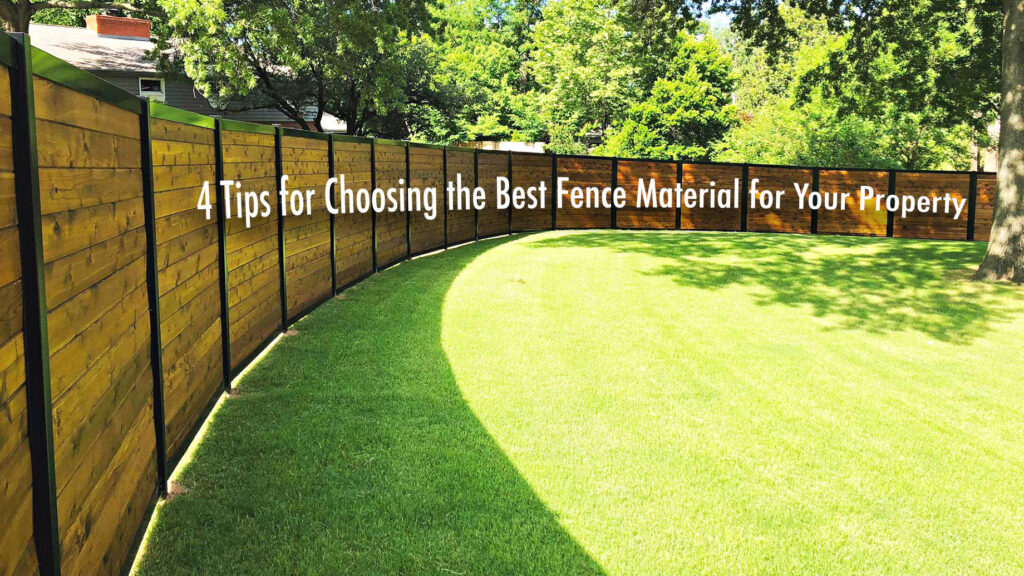
Introduction to Fence Material Selection
Choosing the right fence material is the first step in ensuring that your fence meets your desired needs. The material you choose will significantly impact the fence’s appearance, durability, and functionality. Before diving into specific fence materials, it’s essential to understand the factors that should be considered when making this decision.
Understanding Different Fence Materials
There are various types of fence materials available in the market, each with its unique characteristics and advantages. Wooden fences offer a classic and natural look, while chain-link fences provide security and visibility. Vinyl fences are low maintenance and come in a wide range of styles, and metal fences offer durability and strength. It’s crucial to have a good understanding of the different fence materials and their qualities to make an informed decision.
Factors to Consider When Choosing Fence Materials
When choosing fence materials, several factors need to be taken into consideration. These include the purpose of the fence, your budget, desired level of privacy or security, the local climate and weather conditions, and the overall aesthetic appeal you wish to achieve. By considering these factors, you can narrow down your options and choose a fence material that aligns with your specific needs and requirements.
Wooden Fences: Characteristics and Advantages
Wooden fences are a popular choice due to their classic and natural appearance. They can be customized to various heights and styles, making them suitable for both residential and commercial properties. Wooden fences offer advantages such as privacy, versatility, and the ability to blend in with different architectural styles. However, they require regular maintenance and can be susceptible to rotting and pests.
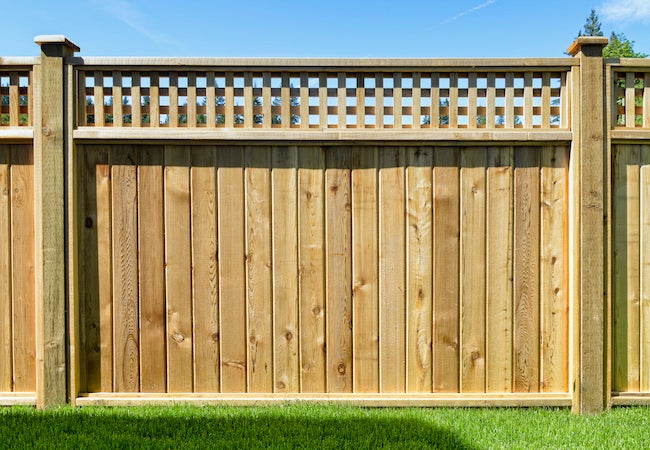
Chain-Link Fences: Characteristics and Advantages
Chain-link fences are known for their affordability, durability, and versatility. They consist of woven metal wires that create a see-through barrier. Chain-link fences are commonly used in residential, commercial, and industrial settings. They offer advantages such as easy installation, low maintenance, and excellent security. However, they may not provide the desired level of privacy and can be less aesthetically appealing compared to other fence materials.
Vinyl Fences: Characteristics and Advantages
Vinyl fences have become increasingly popular due to their low maintenance requirements and durability. They are available in a variety of styles and colors, allowing for customization to suit different preferences. Vinyl fences offer advantages such as resistance to fading, cracking, and warping, as well as being easy to clean. However, they can be more expensive than other fence materials, and certain vinyl fences may lack the traditional charm of wooden fences.
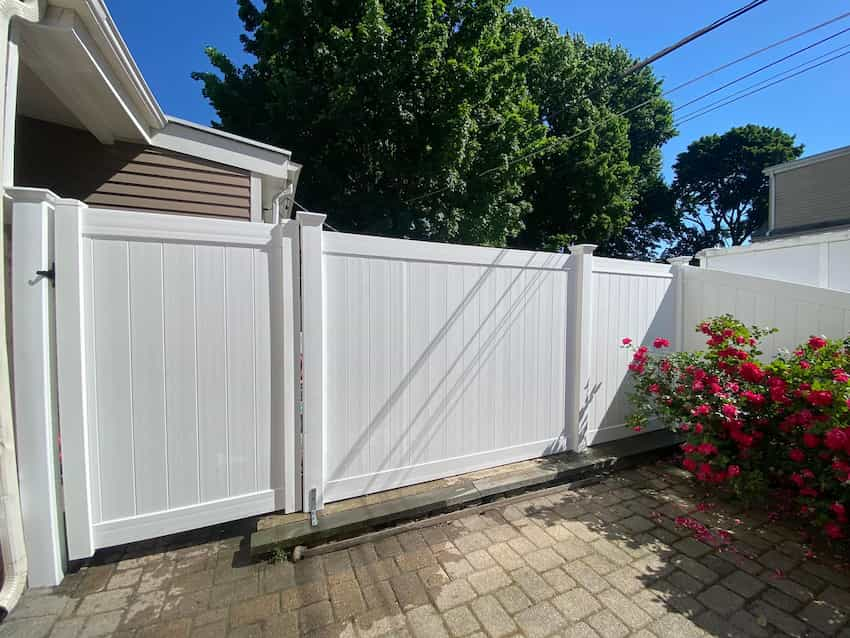
Metal Fences: Characteristics and Advantages
Metal fences, including aluminum and steel, are known for their strength and durability. They offer excellent security and can be customized to different heights and styles. Metal fences are often chosen for their longevity and resistance to elements such as rot and pests. However, they can be more expensive than other fence materials, and certain metal fences may require ongoing maintenance to prevent rusting.
Other Fence Materials: Characteristics and Advantages
In addition to wooden, chain-link, vinyl, and metal fences, there are several other fence materials available in the market. These include bamboo, composite, wrought iron, and more. Each material has its own unique characteristics and advantages. Bamboo fences offer an eco-friendly and natural appearance, while composite fences provide a low-maintenance alternative to wood. Wrought iron fences add elegance and style to properties but may require more maintenance.
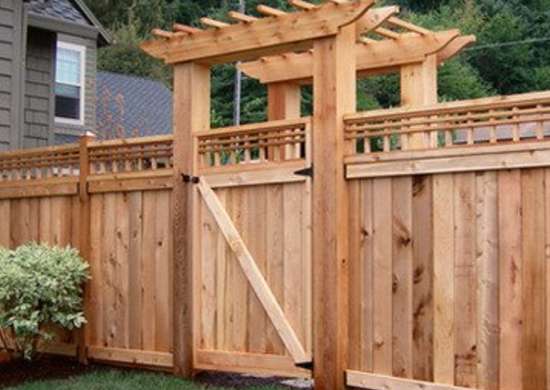
Comparing Durability of Fence Materials
Durability is an important factor to consider when choosing fence materials. The longevity of your fence will depend on various factors, including the material’s resistance to weather conditions, pests, rotting, and general wear and tear. Wooden fences may require more maintenance to ensure their durability, while vinyl and metal fences are often more resistant to these factors. Considering the durability of fence materials will help you make a choice that suits your long-term needs.
Maintenance Requirements for Different Fence Materials
Maintenance requirements vary for different fence materials. Wooden fences require regular staining, sealing, and repairs to protect them from weather damage and pests. Chain-link fences require occasional cleaning and possible repairs to keep them in good condition. Vinyl fences are low maintenance and only require occasional cleaning, while metal fences may need rust prevention measures and ongoing maintenance. Understanding the maintenance requirements of different fence materials will help you choose a material that fits your maintenance capabilities.
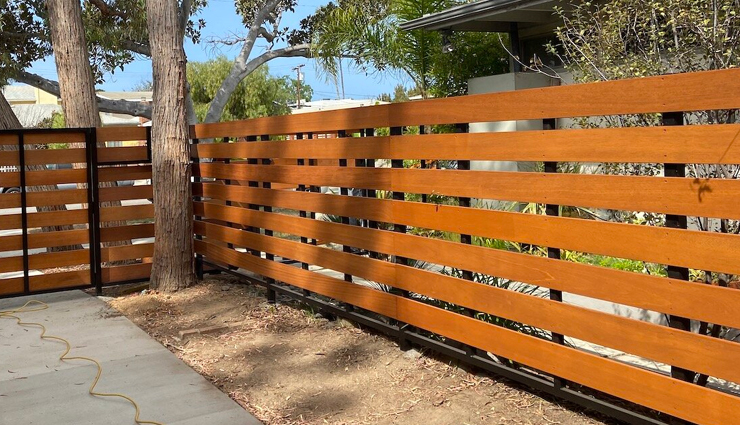
Considering Aesthetic Appeal of Fence Materials
The aesthetic appeal of a fence material is an important consideration, as it can significantly impact the overall look of your property. Wooden fences offer a timeless and classic charm, while chain-link fences have a more industrial and utilitarian appearance. Vinyl fences come in various colors and styles, allowing for customization based on personal preferences. Metal fences can add elegance and sophistication to any property. By considering the aesthetic appeal of different fence materials, you can choose a material that complements your property’s style and design.
Determining Suitable Fence Materials for Privacy
Privacy is often a top priority when installing a fence. Certain fence materials, such as wooden and vinyl fences, offer high levels of privacy due to their solid construction. On the other hand, chain-link and metal fences may provide less privacy due to their see-through design. Various factors, including the fence height and any additional privacy elements, should be considered when determining suitable fence materials for privacy.
Choosing Fence Materials for Security
Security is another essential factor when selecting fence materials. Chain-link fences and metal fences are often chosen for their ability to provide a secure barrier. Investing in sturdy materials and ensuring the fence’s structural integrity can enhance security levels. Other factors, such as the height, style, and any additional security features like gates or locks, should also be considered when choosing fence materials for security.
Fence Materials for Decorative Elements
Fences can also serve as decorative elements, enhancing the aesthetics of your property. Wooden fences, with their natural beauty, can add a warm and rustic appeal to any space. Chain-link fences can be decorated with climbing plants or colorful accessories to add visual interest. Vinyl fences offer various styles and finishes to suit different design preferences. Metal fences often feature ornamental elements, adding an elegant touch to your property. By choosing fence materials that align with your decorative goals, you can transform your fence into a visually appealing focal point.
Conclusion
Choosing the right fence material is crucial to meet your specific needs and requirements. By considering factors such as characteristics, advantages, durability, maintenance requirements, aesthetic appeal, privacy, security, and decorative elements, you can make an informed decision. Whether you opt for wooden, chain-link, vinyl, metal, or other fence materials, it’s important to select a material that aligns with your preferences, budget, and the overall look you want to achieve for your property. Remember to consider the specific needs of your target audience and conduct thorough research to ensure the posts you create provide valuable information and resonate with your readers.
Common Questions and Answers:
-
What is the most popular fence material?
- The popularity of fence materials can vary depending on the region and personal preferences. However, wooden fences are generally considered one of the most popular fence materials due to their classic and natural appearance.
-
How long does a wooden fence last?
- The lifespan of a wooden fence depends on various factors such as the type of wood, quality of construction, and maintenance. With proper maintenance and care, a wooden fence can last anywhere from 20 to 30 years.
-
Are chain-link fences secure?
- Chain-link fences can provide security by acting as a physical barrier. However, they may not offer the same level of privacy as other fence materials. Additional security measures such as gates and locks can enhance the security of a chain-link fence.
-
Do vinyl fences fade in the sun?
- Most vinyl fences are designed to resist fading from sunlight exposure. However, it’s essential to choose high-quality vinyl materials and check with the manufacturer for specific fade resistance warranties.
-
Are metal fences prone to rusting?
- Metal fences, especially those made of iron or steel, can be prone to rusting if not properly maintained. Regular cleaning and applying protective coatings or rust inhibitors can help prevent rust formation.
-
Can I customize the size and shape of a fence?
- Yes, the size and shape of a fence can often be customized to meet your specific needs. However, it’s important to consider any local regulations, property boundaries, and architectural considerations when determining the size and shape of your fence.
-
How much does a fence installation cost?
- The cost of fence installation can vary depending on several factors such as the material used, the size of the fence, any additional features or accessories, and the complexity of the installation. It’s best to obtain quotes from reputable fence contractors to get an accurate cost estimate for your specific project.
-
Do I need a permit to install a fence?
- The need for a permit to install a fence varies depending on local regulations and the height and location of the fence. It’s important to check with your local municipality or homeowner’s association to determine if a permit is required before installing a fence.
-
Can I install a fence myself, or do I need to hire a professional?
- It is possible to install a fence yourself if you have the necessary skills and tools. However, hiring a professional fence installer can ensure that the fence is installed correctly and meets any local regulations. Additionally, professionals often have access to better pricing on materials.
-
How do I maintain my fence?
- The maintenance requirements for a fence depend on the material used. Wooden fences require regular staining, sealing, and repairs. Chain-link fences may need occasional cleaning and repairs. Vinyl fences are low maintenance and generally only require occasional cleaning. Metal fences may require rust prevention measures and ongoing maintenance. It’s important to consult the manufacturer’s guidelines and follow appropriate maintenance practices to prolong the lifespan of your fence.
Table: Fence Materials
| Fence Material | Characteristics | Advantages |
|---|---|---|
| Wooden Fences | Classic, natural appearance | Privacy, versatility, customizable |
| Chain-Link Fences | Woven metal wires, see-through barrier | Affordability, durability, security |
| Vinyl Fences | Low maintenance, various styles and colors | Resistance to fading, easy to clean |
| Metal Fences | Strength, durability | Security, longevity, resistance to elements |
| Other Fence Materials | Bamboo, composite, wrought iron, etc. | Unique characteristics, alternative options |
